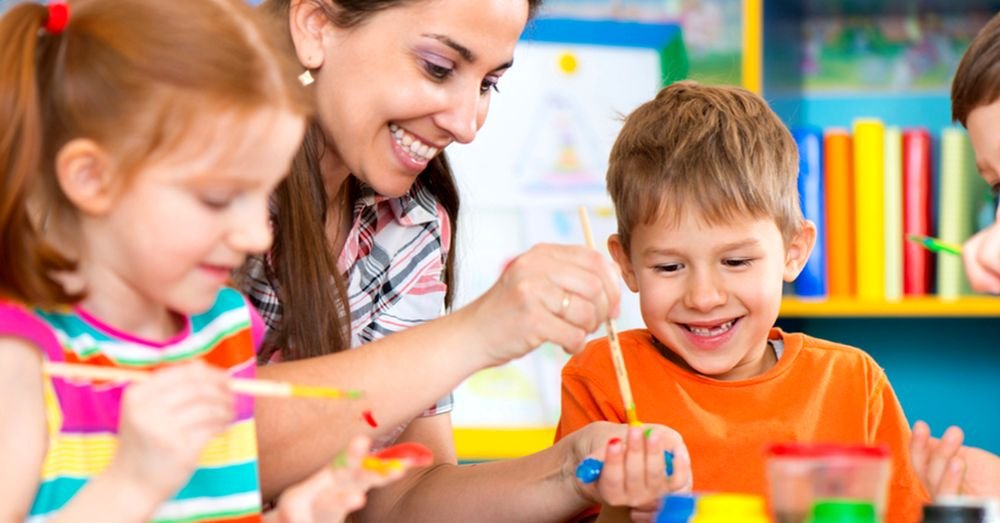
The psychologist and specialist for special education Bihter Mutlu shares his views on Öğret Teaching Emotions to Our Children üyle with the second and last part of our series.
Can children learn and develop awareness of their feelings?
Our children can learn to perceive feelings. Therefore, they can develop their “empathy” to predict what others might feel. This feeling develops around the 3rd year of life and can develop in the course of life. Bihter Mutlu says: “In general, children like us can express their feelings indirectly instead of sharing them. But if we can give them the message that we unconditionally accept them with all their positive and negative emotions by giving them the opportunity to express their emotions as a role model, and if we don’t act accusingly or judgmentally and listen to them to the end, Without interrupting, our children feel comfortable expressing their feelings and are therefore open to improvement. . "
One way to deal with problems: name and accept emotions
Sometimes the problems can be solved before they increase if you only accept negative emotions given negative behaviors. When we ask a passing person how many types of emotion names you can say, it is possible to say a few types of emotion names. In general, the answers will be known, namely happy, sad, angry, scared, surprised, embarrassed, jealous. However, when we think about it, we can find dozens of words to express our feelings. To be satisfied, to love, to like, to be in love, to be excited, to care, to feel close, to have fun, to be optimistic, to be enthusiastic, to feel peaceful and calm, to be hoped for to trust, to be connected, to feel, to be aware, to emotionalize, to relax, to feel safe, to tolerate, to feel strong or powerless, to feel bored, to be curious, to feel strange, to be jealous, to feel pain, to feel feeling uncomfortable, being proud, being arrogant, humbling yourself, settling down, being excited, disappointed, it is not difficult to express yourself in the form of pessimism, feelings of guilt, disgust, frustration, despair, indifference, shock, worry, failure and confusion develop. As we have seen, there are so many emotions that we can name in terms of behavior. In suitable and necessary environments, we can name emotions by choosing from this list to be a model for our children and the Understand our children’s behavior.
Another way to solve problems: understanding the underlying emotions of behavior
Sometimes understanding the underlying emotions of our child’s behavior can solve things before they become a problem. Your change of direction is a defense mechanism that we all use from time to time. The change of direction is the main goal instead of moving in another direction. Skills are not fully developed, especially children often use this mechanism. Sometimes they get angry at something, it takes time to figure out why they are angry. Sometimes they can be jealous and we have to think a little bit about why they are incompatible. If we make an effort to find the source of the emotions in our child’s behavior and make them aware of it, we will have no difficulty ordering things. "
There are several example situations in which we can name emotions or understand the underlying emotions of behavior:
Case 1: Your 3 year old says there’s a monster in his room and he doesn’t want to sleep.
What is the automatic answer in general?
Yok There is no monster in your room, ”yok There is nothing to be afraid of. There is no monster Zaten
When we say that, the child feels unclear. However, the 3-year-old is sure that there is a monster in his room. Since his mental development is now sufficient to perceive concrete things, he perceived a shadow or a branch of a branch in space as a monster.
Appropriate approach:
Instead of all of these automatic responses, we can accept fear and act in this way. There can be many emotions that we can name here. "So you are afraid", in you felt very uncomfortable ", and you don’t feel safe?", "You know that’s normal? All children of your age can be scared at night. What can I do to comfort you? Üzerine Our child can then say what it takes, feel accepted and relaxed.
Case 2: Her 4-year-old daughter came home from kindergarten and said: "Mother, I don’t like Ayse at all."
What is usually an automatic response?
Ne What happened again? "," Why? Ayşe is a very cute girl. "" No, I think you really liked Ayşe, but something happened today. "" Ayşe is actually good, pretty style. “When we say such things, we close all communication channels against our child. What happened again When we say that you are guilty of a precise statement. What our child needs at this time is not how cute and sweet Ayşe is. All it takes is to rest and be accepted.
Appropriate approach:
Instead of all these automatic reactions, we can repeat the word he said with the mirroring technique: "Hmm … don’t you like Ayşe? Is it jealousy or anger? You can help your daughter, who is jealous that Ayşe is wearing a pink skirt and the teacher likes her very much, to feel these feelings and express them appropriately.
Case 3: Your child in elementary school came home, threw his bag on the wall and said: "Dad got 2 from the exam, Mehmet got 5, the teacher always gives him 5"
Usually automatic replies:
"My son, you get 5 from the next exam", "You haven’t worked enough yet", "Mehmet is a very hardworking student, you work, you get 5", "Come on, I’ll get you an ice cream and cheer you up a bit. By acting, we avoid the emotions that arise from the event in our child. These reactions will double the sadness of your already sad child and put pressure on them to reach the next test 5, which will make Mehmet even more jealous and turn this jealousy into anger.
Appropriate approach:
In this case, there are many emotions that you can name. Dın So you have 2, you must have felt very sad, ”mi. Did you feel unsuccessful, baby? “,“ (Not ironic, but with a suitable expression) Could you be a little jealous of Mehmet? “, Orum I see that you are disappointed I know that you worked hard for this test
Case 4: Your child came home from kindergarten and started tossing all of his toys around. He even broke one or two.
Usually automatic replies:
"What do you think you do? kırma Don’t break your toy ", ne What happened again in the nest?", "No more toys for you" …
Appropriate approach:
"Hmm. you look very angry", orum i see you sad, do you mind if i find out why? "," So you’re mad at your boyfriend, what can you do now to relax? "
Case 5: (An example of much smaller ones) Your child fell and slapped his head on the table crying.
Usually automatic replies:
And that’s what happens when you run ”, lum take care of my son (they can make you feel guilty).
Appropriate approach:
"Yes, it hurts a lot", where you can cry a little bit, I hope the pain will go away soon When she approaches like this, she helps to stay and deal with her feelings.
Case 6: An approach like cork that cries like a baby that will never feel sorry for. Perhaps he is giving your child the fearful message that the pain is not understood. Instead yaklaşım yes it will, but this pain won’t last long, I think you can handle it, what do you think? Yaklaşım’s approach to preparing for the needle and understanding the feeling is more appropriate.
Case 7: Her 5-year-old grandmother went into a corner and sat while feeding her brother: "Mother, you always feed him, you never feed me".
Usually automatic replies:
I don’t act like a baby, "Of course I will feed them how can you eat your own?", Old. You are a big sister now, you are still jealous? "," You can’t pull your brother anyway. "
Appropriate approach:
First of all, it is useful to recognize how natural and human the jealousy of the brothers is and that these emotions have different benefits. "Could you be a little bit jealous of my baby? Well, that’s normal, brothers are always jealous of each other. I can’t get you to eat now, but I think I can help you with that strong emotion. What can you offer me? In this case, you can accept your child’s feelings and take a fully communicative approach.
To summarize what we are aiming for:
1) We create emotional awareness and psychologically mature our children.
2) That is why we support them in developing a feeling of empathy. (Empathy is not possible without recognizing their own feelings)
3) We raise confident children who have accepted each other with their good and bad sides.
4) We can develop the skills to understand others and accept them with their good and bad sides, and thus build healthy relationships.
5) We give you the opportunity to see you as parents who can always say everything and accept them in all their aspects.
6) We will make sure that the problems don’t get bigger.
Contact Bihter
Psychologist and specialist in special education
ELELE child and family counseling, development and education center
Tel: 0212 2239107
RELATED ITEMS
-

Start kindergarten – baby development
It is very important to succeed in this first socialization process, in which the child has managed to stay separated from the family…
-

Age 2 syndrome and anxiety – baby development
2-3 age syndrome While children’s fears often seem inappropriate and unrealistic, the world is full of real and imaginary threats…
-

Important for baby development: play alone »magazine»
Important for development: Let your child play alone now and again Children need to play together with their parents for their development,…
-

Chess for preschoolers – baby development
Chess, which has become a game / sport that is often encountered in preschool programs, entertains and educates children. Are parents and educators…
